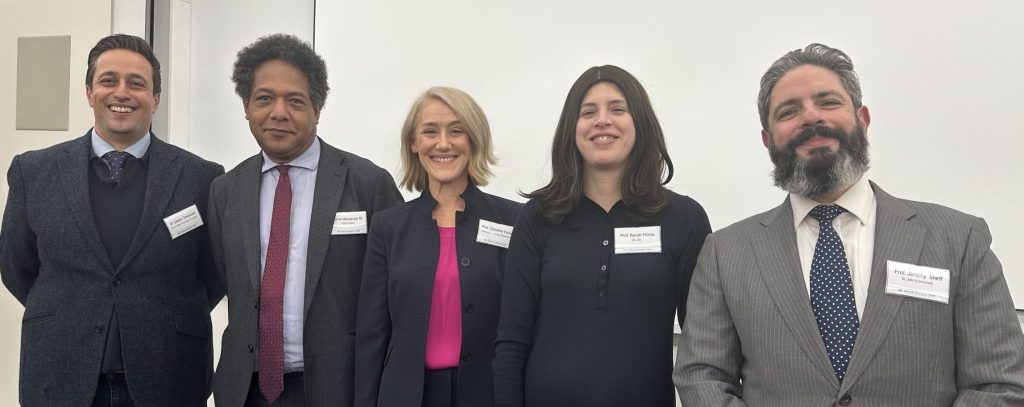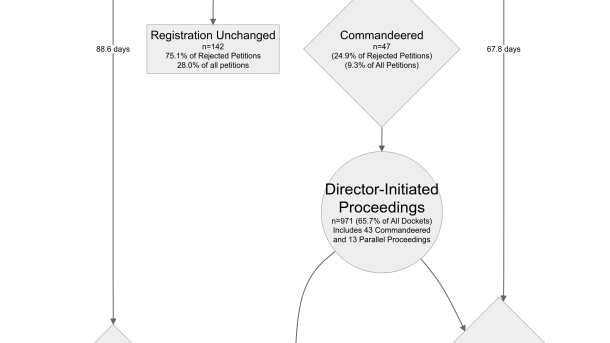On February 26th, I participated in a panel discussion at the Annual Brand Seminar of the University College London Institute of Brand & Innovation Law. The seminar, entitled “Beyond Transactions; Beyond Jurisdictions: Post-sale Confusion and Targeting,” brought together academics, judges, and lawyers to discuss recent developments in UK trademark law through comparative analysis of US and EU law.

My remarks focused on the historical development of the concept of post-sale confusion in US trademark law, and its contrast with trademark infringement doctrines in the EU, as background for exploration of post-Brexit developments in UK trademark law.
It was a real pleasure to engage in discussion with UK lawyers, academics, and judges (Lord Justice Richard Arnold and retired Lord Justice Robin Jacob were in attendance and posed challenging questions). Many thanks to Professor Ilanah Fhima for organizing and hosting, and to Professor Jasem Tarawneh for moderating.

